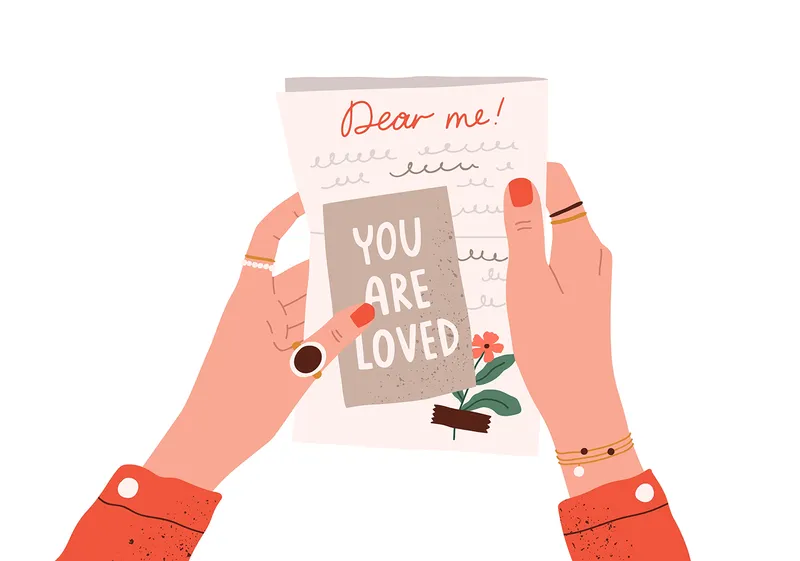Are GenZ women selfish in dating? No! They are just honest about what they want.
The women of Generation Z are redefining dating and relationship norms. They are vocal about their needs and willing to wait for the right partner.
Baby, keep loving me
Just love me, yeah
Just love me
All you need to do is love me, yeah …
The popular song ‘Love on the brain’ by nine-time Grammy award winner Rihanna in 2016 spotlighted how women can’t seem to get enough of their partners, even if they are in a toxic relationship.
This may not be true anymore—what with GenZ women increasingly challenging outdated and gendered relationship expectations.
That’s not all!
This generation’s women are also vocal about their needs and priorities, even if it means breaking away from traditional dating and courting norms in a patriarchal society like India.

Image credit: Shutterstock
Mahi Mehta*, a 25-year-old marketing professional from Delhi, is in no hurry to enter a relationship. She has been on several dates in the last few years but she says hasn’t found anyone “interesting”.
This doesn’t bother her. Nor does she feel insecure about her relationship status, despite being the only ‘single’ person in her friends’ circle.
“I don’t get the fuss of being in a relationship for the sake of it. If I find someone like-minded, who shares my love for food, literature and films, I may want to be with him. He also needs to respect my need for space. Until then, I am happily single!” says Mehta, elaborating what seeks in a relationship.
With greater awareness on social media and more discourse on women’s rights and feminism, GenZ women have a deeper understanding of what a healthy relationship looks like and are not willing to put up with toxic behaviour, explains Ruchi Ruuh, relationship expert at Bumble dating app.
Authenticity trumps all
GenZ women are no longer fixated on finding the tall, dark and impossibly handsome Darcy (of Pride and Prejudice fame). Looks aren’t a priority; honesty, respect and authenticity matter more, say women.
“I want an empathetic and honest man, who respects my opinion, even if he has different views,” says Karishma Sharma, a 27-year-old sales professional from Kolkata.
“I have seen my older friends suffering in relationships where the man is controlling and isn’t comfortable with the individuality of a woman,” she adds.
While experimenting comes naturally to GenZ and they are open to meeting different kinds of people, they have certain non-negotiables when it comes to dating and relationships.
Women of this generation seek open conversations, emotional availability, and consistency.
This means no more playing games and being upfront about their needs and relationship goals, reiterates Ruuh.

Image credit: Shutterstock
Women also have clear markers of green and red flags—political ideology and views on sexuality and sexual rights.
In a survey conducted by Bumble, titled Love Unfiltered 2023, 21% of GenZ respondents said they do not seek partners who don't align with their political ideology, while 19% respondents do not wish to be with someone who is not an LGBTQ+ ally.
“Many of the men I met on dates were homophobic. Not only did they ridicule those who belonged to the LGBTQ+ community, they were also tone deaf to most sexual orientations. I can’t be with someone who has such a narrow worldview,” says Sherry Singh*, a 23-year-old student from Kolkata.
“Unlike previous generations where women often compromised because of financial dependence or social pressure, GenZ has been empowered enough to fight for they want and deserve. They may also have more support from some of the adults in their lives as compared to millennials,” says Preeta Ganguli, a therapist and mental wellness consultant.
Self-love is key
Today, there is a huge shift towards individuality and self-love, as women prioritise their personal growth and goals.
GenZ women have been exposed to the concept of self-love at an early age compared to the women of the previous generations, and they don’t think they are being selfish by taking care of themselves and their needs.
“I am in a long-distance relationship with my partner. While we have a fixed time to chat every night, there are times when I am drained post work and can barely speak a word. On such days, I prioritise my mental well-being by watching a show or just spending time in silence,” says Akshita Sehri*, a 28-year-old event manager from Mumbai.

Image credit: Shutterstock
Ganguli believes women are also discovering different ways in which one can experience love and friendship and are building a community of women who support each other.
“Many have found or created solid support systems outside of romantic relationships, reducing their dependence on their partners. This does not mean they do not seek companionship or a romantic partner,” she says.
Establishing healthy boundaries
In order to protect themselves in a relationship and not be taken for granted, women are setting boundaries that define what they are comfortable with and how they would like to be treated by others.
Touch, personal space, and physical needs fall under the ambit of physical boundaries, while emotional boundaries encompass space, respect and kindness, and personal likes and dislikes.
While looking for partners, over half of GenZ women (55.5%) prioritise establishing emotional and physical boundaries, reveals the study by Bumble.
“Sometimes people might not appreciate boundaries or may try to cross them. Healthy boundaries are rooted in communication and understanding, and they need to be established with respect,” emphasises Ruuh.
Having said that, sometimes women tend to get overly guarded about their needs, making them extra cautious while choosing a partner. This could be due to the impact of intergenerational trauma, ancestral patterns (patterns and traits inherited from ancestors), and childhood experiences.
“This could block opportunities for love and genuine connection because we may be seeing things in pure black and white, which is hardly the case. No relationship is going to be perfect or without hiccups,” points out Ganguli.
Ruuh shares some ways to establish healthy boundaries and adapt to the evolving relationship.
- Identify what makes you feel uneasy or stressed in a particular situation to establish necessary boundaries.
- Communicate your boundaries with clarity and respect.
- Recognise that different situations may require different types of boundaries. Relationships are ever-evolving; so be ready to make adjustments according to the situation.
- Strive to find a middle ground by discussing and negotiating boundaries.
Striking a balance
While it is important to prioritise one’s needs, it is also equally important to understand the needs of the partner. Mutual respect and efforts from both ends are essential for a healthy relationship.
“Remember, losing yourself and your needs and only prioritising your needs over your partner’s are two extremes. Either way, one partner will be hurt and there won’t be balance. Balance can be achieved when both partners are respected and heard and both make mutual effort,” advises Ganguli.
*Name changed to protect identity
Edited by Swetha Kannan







